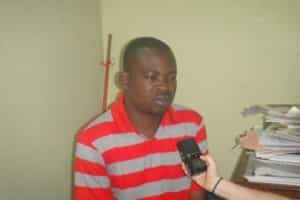
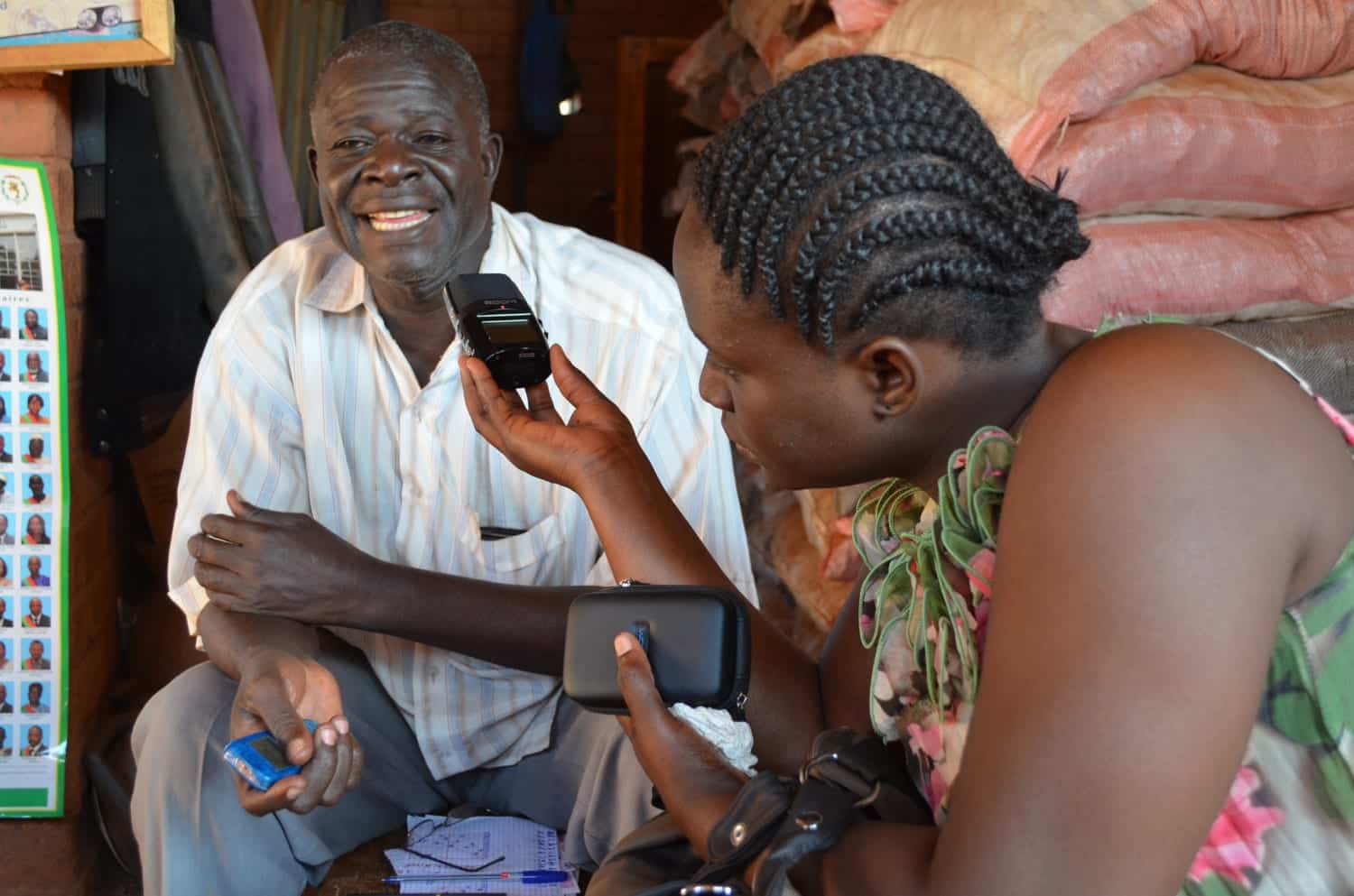
Building trust in local governance in Burkina Faso
Radio-facilitated transparency and accountability in local governance in Burkina Faso increases civic participation and tax revenue.
A Project of —
Peace Through Development II (PDev II)

Located about 60km from the Malian border, the commune of Ouahigouya serves as the capital of both its province and of the Northern Region of Burkina Faso. With the highest population density in the province and an arid climate that leaves its agrarian population vulnerable to droughts, Ouahigouya suffers from political instability and soaring youth unemployment rates. As Deputy Mayor Ibrahima Ouedraogo recounts:
In recent years the whole country has suffered from instability, but it hit us particularly hard. Many of our public and state buildings were pillaged and burned [in the 2011 riots]. If you pass through our town you see the remnants – many of our state buildings have yet to reopen.”
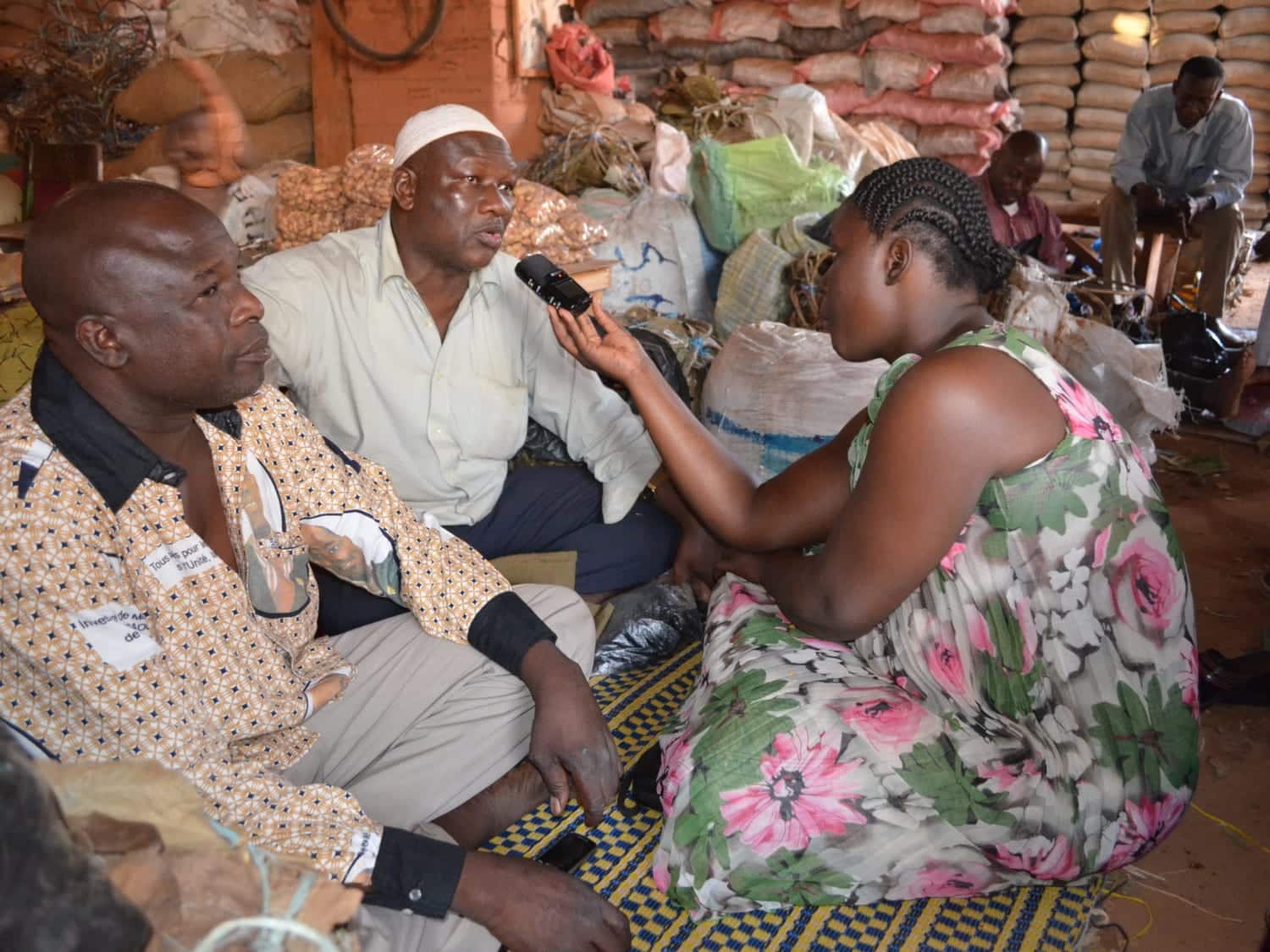
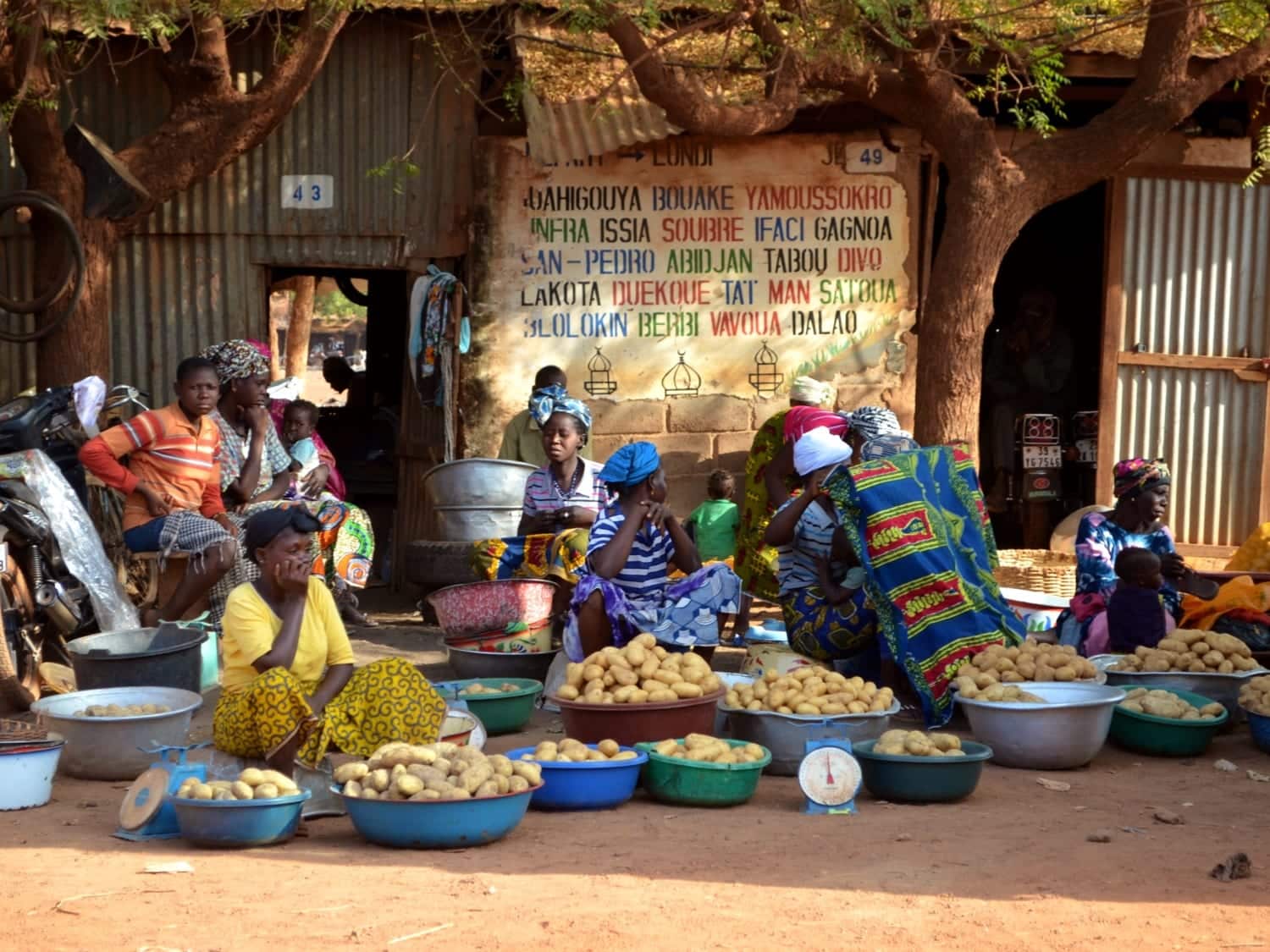
When the USAID-funded Peace Through Development II (PDev II) project intervened in Ouahigouya in 2013, the charred landmarks were a visual metaphor for the bitterness many citizens felt towards their local government. They stood as a reminder of the potential for grievances to erupt into violence. To ease these tensions, PDev II began implementation of a series of interconnected activities designed to create transparency and dialogue in local governance, thereby increasing the accountability of local officials and creating resilience to violent extremism. Radio programming and media strengthening provided by Equal Access International (EAI) was tantamount to these efforts. In addition to producing and broadcasting quality, Mooré-language good governance radio programming that used community reporters to incorporate the voices and opinions of local citizens and officials alike, EAI also provided training and support for local radio productions on tolerance and good governance.
In the past, people misunderstood or just didn’t know what we were doing. Citizens did not come to the council to express their opinions, and in the same vein, the council didn’t put a lot of consideration how it was serving the citizens.” – David-Hiver Ouedraogo, Director of Communications for the Municipal Council
The radio programs sparked a new awareness among council members, which inspired the council to invest in live broadcasts of all meetings across three local radio stations. They also began publishing political proceedings in a free quarterly magazine, and hosting Inter-Community Dialogue’s to provide council members with the opportunity to present the political progress achieved to a citizen audience.
The Deputy Mayor said public reception of the council’s initiatives has been incredible:
Following council meetings, we’re getting a lot of feedback: letters, calls, and emails. We’re very aware of a keen public interest in our actions…People are participating, asking questions, holding officials accountable, and making suggestions. It’s too early yet to say that the system is perfect, but we know that we’re on the right track and that citizens will hold us to it and not permit us to revert to old habits.
We asked ourselves ‘why is it that every time there is a problem, the government is attacked?’ We realized that it was because there was no communication between the people and the council members. As a result, we have now started an initiative to live broadcast all council meetings on local radio channels, so that everyone can follow the proceedings. This also motivates council members to voice their electorate’s concerns because their constituents are listening.”
Beyond increased citizen participation, the commune’s newfound transparency is also producing tangible financial results: a drastic increase in the percentage of small-shop owners, vendors, and cart-workers paying tax. The unexpected gain in tax revenues has been a boon to local development, providing the council with a financial incentive to make a long-term commitment to good governance.
THANKS TO THIS TRANSPARENCY, WE HAVE MANAGED TO INCREASE THE PERCENTAGE OF CITIZENS PAYING TAXES IN OUR COMMUNE FROM 42% TO 98%!” -Ibrahima Ouedraogo, Deputy Mayor, Ouahigouya
We’ve never seen transparency like this in our town management; it has renewed our faith in our municipal council. Now citizens are submitting complaints to their councilors so they can be raised during council sessions. With the live broadcasts, if the councilors don’t act on those concerns, we take notice. It’s a new way for us to hold our representatives accountable. Furthermore, as a market vendor, I’m now paying my taxes, because I understand where my money is going. Before, when the tax collectors came, everyone fled, the market cleared out in an instant. Since the broadcasts, and the new communications strategy, we voluntarily go to the town call to register and pay our taxes because we have confidence that their actions are being made public.” – Mahamadi Ouedraogo, Kola nut merchant
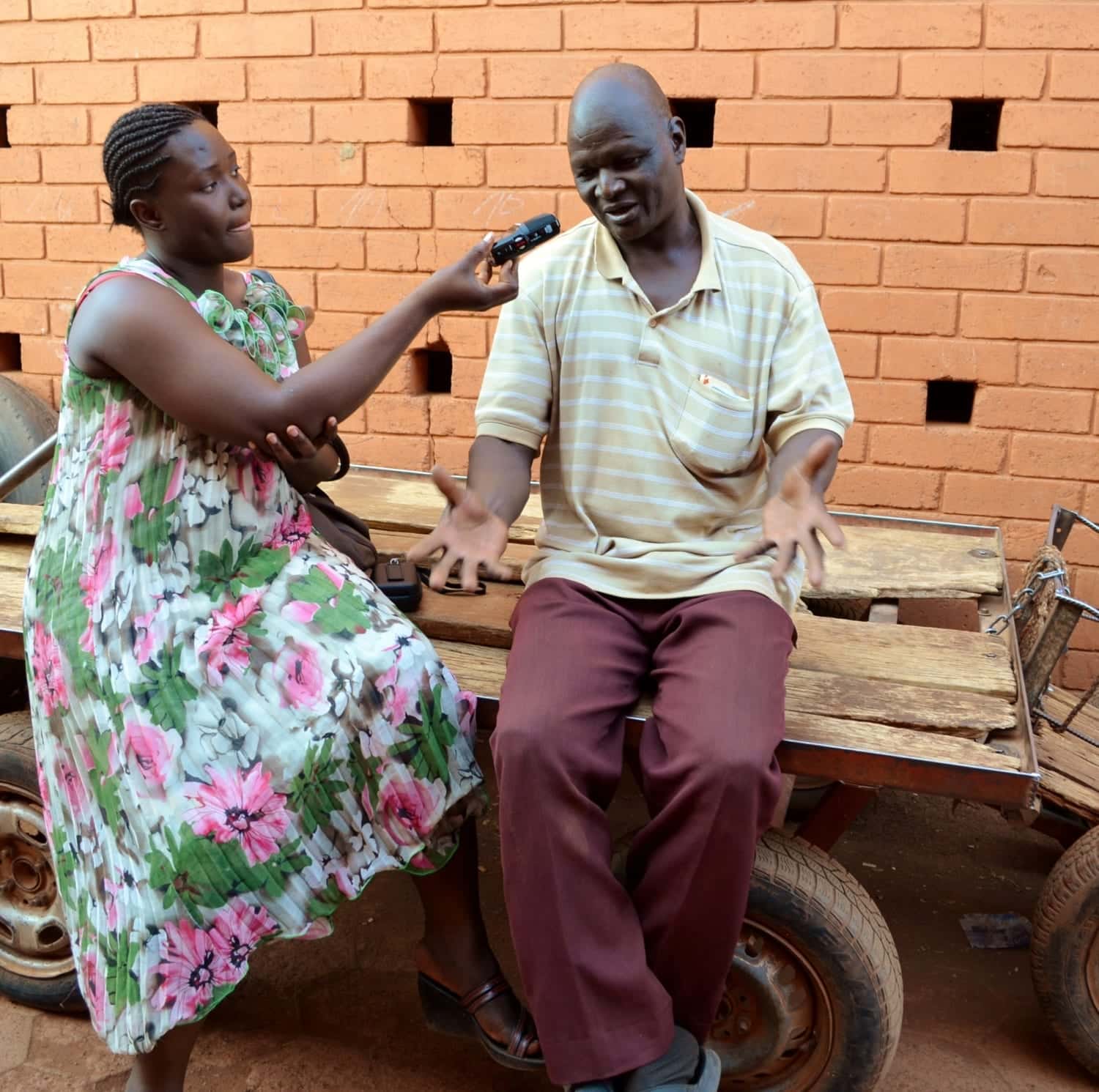
"Previously, when we paid our 4,000 CFA cart tax, we didn’t know where that money was going. Now we realize that those taxes are funding public projects that benefit us, and we don’t hesitate to pay."
In my forty years working in the market, I’ve never seen such a transparent administration. In the past, local affairs were kept secret, but now that they’re broadcast there is no more injustice. We are so pleased with this transparency that we’re now eager to pay taxes, as we appreciate the public services achieved with our money, such as the municipal cemetery, and the cleaning and maintenance of our town.” – Solfo Ouedraogo, Vendor in Ouahigouya’s central market
* Footnotes: Writing, interviews, translations and photography by Rebecca Chapman, Equal Access International. Article published also on Exposure.
